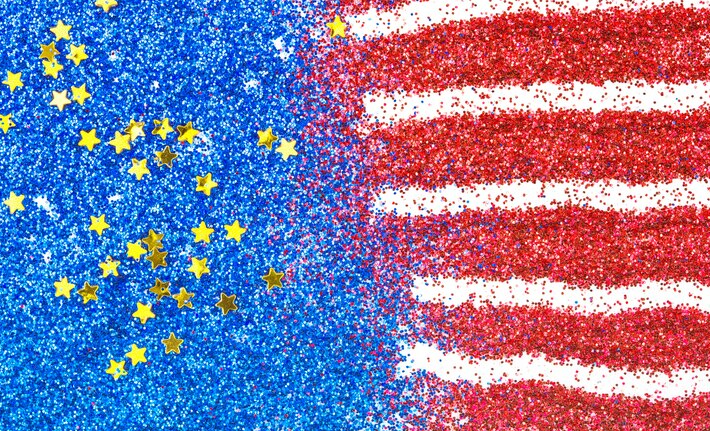EU: Trump’s tariff hike on steel imports disrupts negotiations

JAKARTA – US President Donald Trump’s decision to raise import tariffs on steel and aluminium from 25% to 50% has drawn sharp criticism from the European Union.
In an official statement quoted by the BBC on Saturday (31/5), the European Commission expressed deep regret over the decision, warning it could derail ongoing trade negotiations between the two parties.
The policy was announced by Trump during a campaign rally in Pittsburgh, the heart of the US steel industry, on Friday (30/5).
He argued that higher tariffs would strengthen the independence of the domestic steel industry and reduce reliance on Chinese products.
Trump also claimed that no jobs would be lost and that every steelworker would receive a USD 5,000 bonus.
However, the European Commission warned that Trump’s move would only increase global economic uncertainty and raise production costs for businesses and consumers on both sides of the Atlantic.
“This move undermines the ongoing negotiation efforts,” the Commission said in its statement, quoted by the BBC on Monday (2/6).
It also warned that the European bloc is ready to impose retaliatory measures if necessary.
European nations had previously agreed to suspend retaliation against US tariffs since 14 April in order to create space for dialogue.
However, following the latest developments, the threat of retaliatory tariffs now appears increasingly likely.
Meanwhile, the UK government, which had just concluded a zero-tariff trade deal with the US—though it has not yet been signed—is now facing fresh uncertainty.
A UK government spokesperson said they were engaging with the US on the implications of the latest tariff announcement and working to provide clarity for industry.
The UK Steel Association described the tariff hike as “yet another heavy blow” to the sector.
The UK, which has set its own trade policy since Brexit, now finds itself vulnerable to sudden shifts in US tariff strategy.
Trump also announced a USD 14 billion investment through a partnership between US Steel and Japanese firm Nippon Steel.
However, when pressed further, he admitted he had neither seen nor approved the final terms of the investment deal.
This latest tariff move adds to a growing list of protectionist measures introduced by Trump since returning to office earlier this year.
Previously, in April, Trump had imposed a 20% tariff on most EU products, which was later reduced to 10% to allow space for negotiations.
He even threatened to raise the tariff to 50% starting 1 June, before delaying the deadline to 9 July following what he described as a “very good” phone conversation with European Commission President Ursula von der Leyen.
Trump’s decision also comes amid ongoing legal challenges regarding the legitimacy of some of his global tariff policies.
However, the tariffs on steel and aluminium are not included in those lawsuits and remain in effect. (EF/ZH)